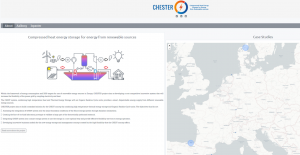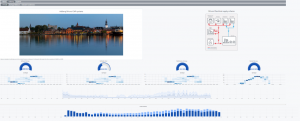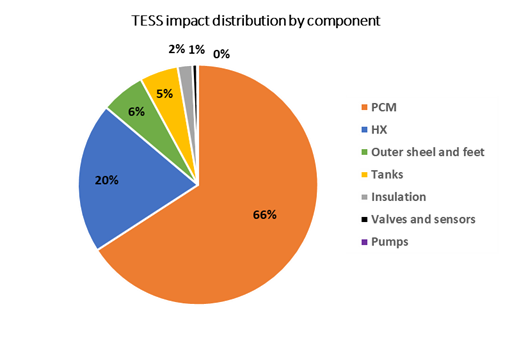The CHEST system is based on existing technology (heat pump, thermal storage, Organic Rankine Cycle), but ground-breaking advancements are necessary to ensure high-efficiency and cost-competitiveness of the system.
Six geographically wide-spread case studies and two selected studies
To advance the existing technology, CHESTER project performed an extensive analysis of six case studies. Despite very different boundary conditions, each case study could benefit from the possible integration of the CHEST system. The case studies cover combinations of short- and long-term thermal energy storage, district heating network at different temperature levels, access to excess heat, integration of different renewable energy sources, different geographical location (Northern, Central and Southern Europe).
For each of these sites a technical report was elaborated, based on which it was possible to make a preliminary estimation of the potential benefit that the CHEST concept would bring to the existing systems. The following case studies were included: Turin (Italy), Aalborg (Denmark), Ispaster (Spain), Barcelona (Spain), Alpha Ventus (Germany), Lekeitio (Spain). Aalborg and Ispaster have been selected as the most promising case studies for continuing further. Both of them are currently undergoing monitoring using a Graphical User Interface (see Figure 2 and Figure 3).

Figure 2. Map with selected Case Studies visible: Ispaster (Spain) and Aalborg (Denmark)

Figure 3. Graphical User Interface Dashboard for Aalborg Case Study



